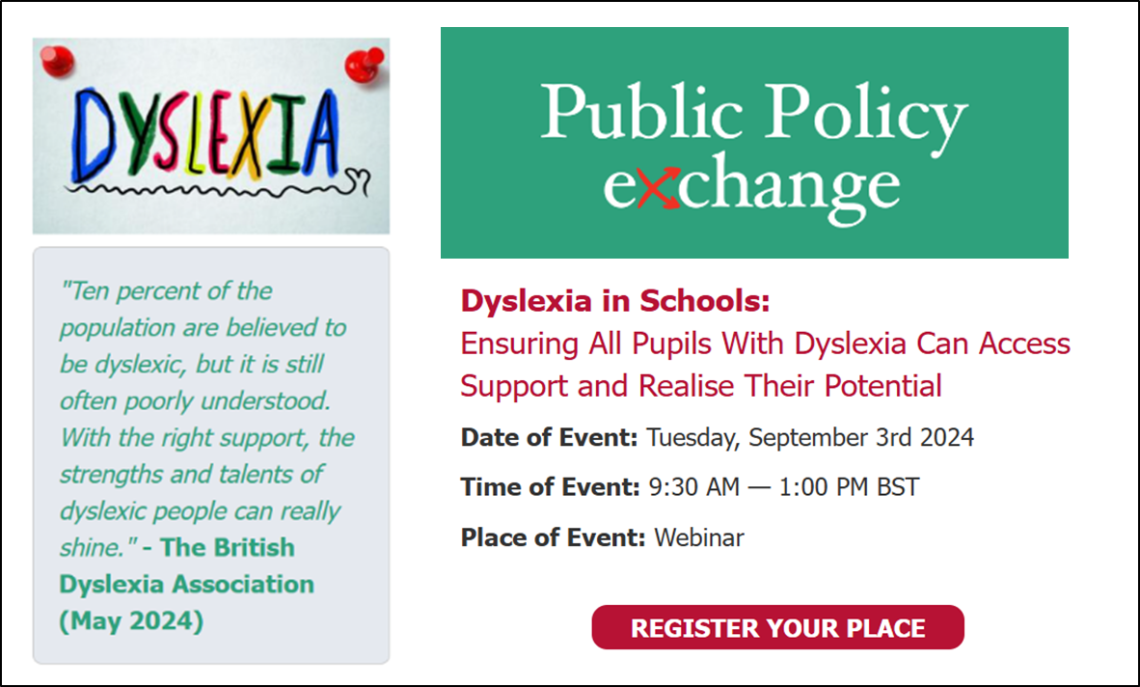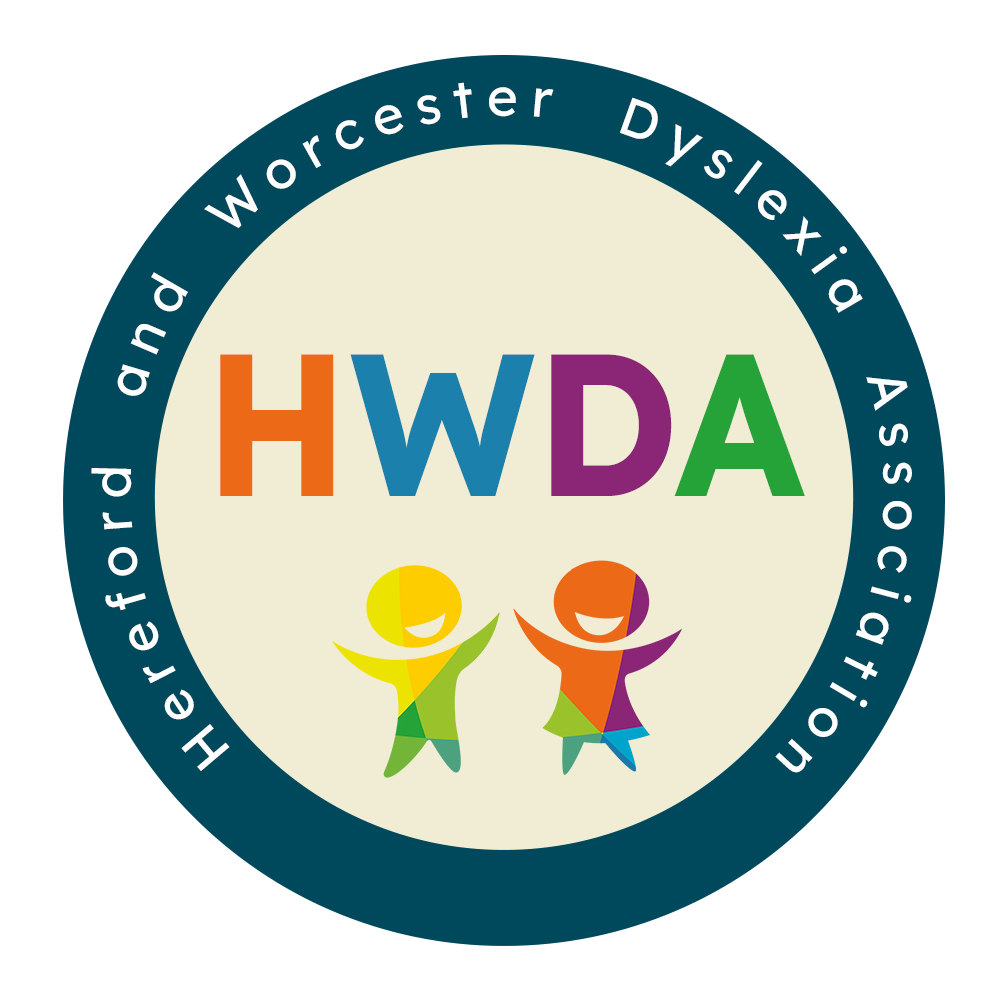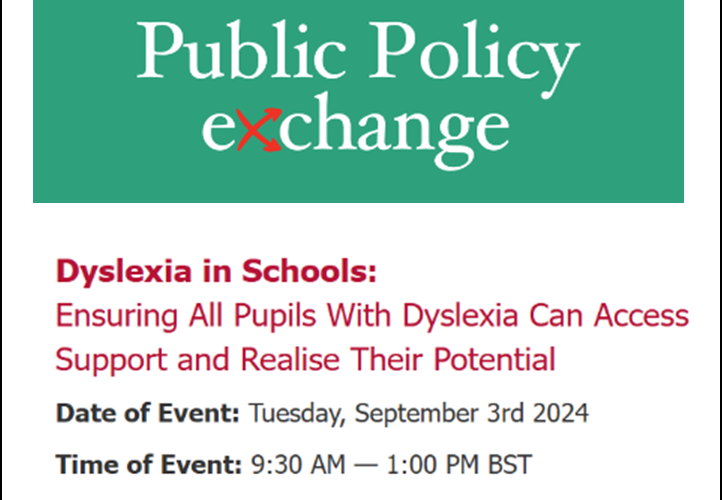Tackling Dyslexia in Schools: Public Policy Exchange Webinar 3rd September 2024

This timely symposium offers local councils, education authorities, SEND professionals, specialist dyslexia teachers, children’s charities and other key stakeholders the opportunity to examine the government policy on SEND and support in schools for children and young people with dyslexia and discuss strategies for improving dyslexia support and helping those with dyslexia to meet the challenges and embrace the opportunities that dyslexia can bring.
Programme
- Assess government policy relating to SEND and dyslexia in schools and avenues for better identifying pupils with dyslexia and ensuring they can access support
- Examine the Neurodivergent Conditions Screening, Teaching and Training Bill and how it could best be implemented
- Learn about the latest techniques and approaches for supporting children and young people with dyslexia with their reading and literacy
- Improve understanding of the reasonable adjustments that education establishments should make for pupils with dyslexia
- Exchange best practice on working with children with dyslexia in schools to embrace their strengths and attributes, pursue their interests and develop their full potential
- Develop strategies for improving mental health support and interventions for pupils with dyslexia
- Motivating students and staff to improve engagement
For more information you can follow this link: https://www.publicpolicyexchange.co.uk/event.php?eventUID=OI03-PPE
According to the British Dyslexia Association, 10% of the UK population are dyslexic, with 4% being severely affected, while a 2019 global report by Made From Dyslexia estimates that as many as one in five people are dyslexic. Research published in 2022 by Made From Dyslexia suggested, furthermore, that 43% of schools in the UK fail to understand dyslexic challenges and 80% of dyslexics leave schools undiagnosed, with only one in 10 teachers in the UK having a good understanding of dyslexia. The British Dyslexia Association consider diagnosis and support to be in their worst state since government funding for dyslexia began in the 1980s.
Under the Equality Act 2010, education institutions have a duty to make reasonable adjustments for students with special educational needs and disabilities (SEND) such as dyslexia. The government has put measures in place to identify pupils who are facing challenges with reading and literacy, and to help teachers understand how to support them. Its SEND Code of Practice, however, sets out that meeting the needs of a pupils with dyslexia does not require a diagnostic label or test. Instead, teachers are expected to monitor the progress of pupils and put support in place where needed.
In 2023, the government unveiled plans for reforming the SEND system in England, which it has since been rolling out to ensure the educational system better meets the needs of all SEND pupils. In April 2024, following the failure to secure the adoption of his Private Members’ ‘Dyslexia Screening and Teacher Training’ Bill, Matt Hancock MP introduced to Parliament a modified and expanded ‘Neurodivergent Conditions Screening, Teaching and Training Bill’. The new bill aims to improve training for teaching neurodivergent pupils and ensure all children are screened before the end of primary school for neurodivergent conditions such as dyslexia.
We will keep you informed of developments and outcomes from the conference as well as the progress of the Neurodivergent Conditions Screening, Teaching and Training Bill.

